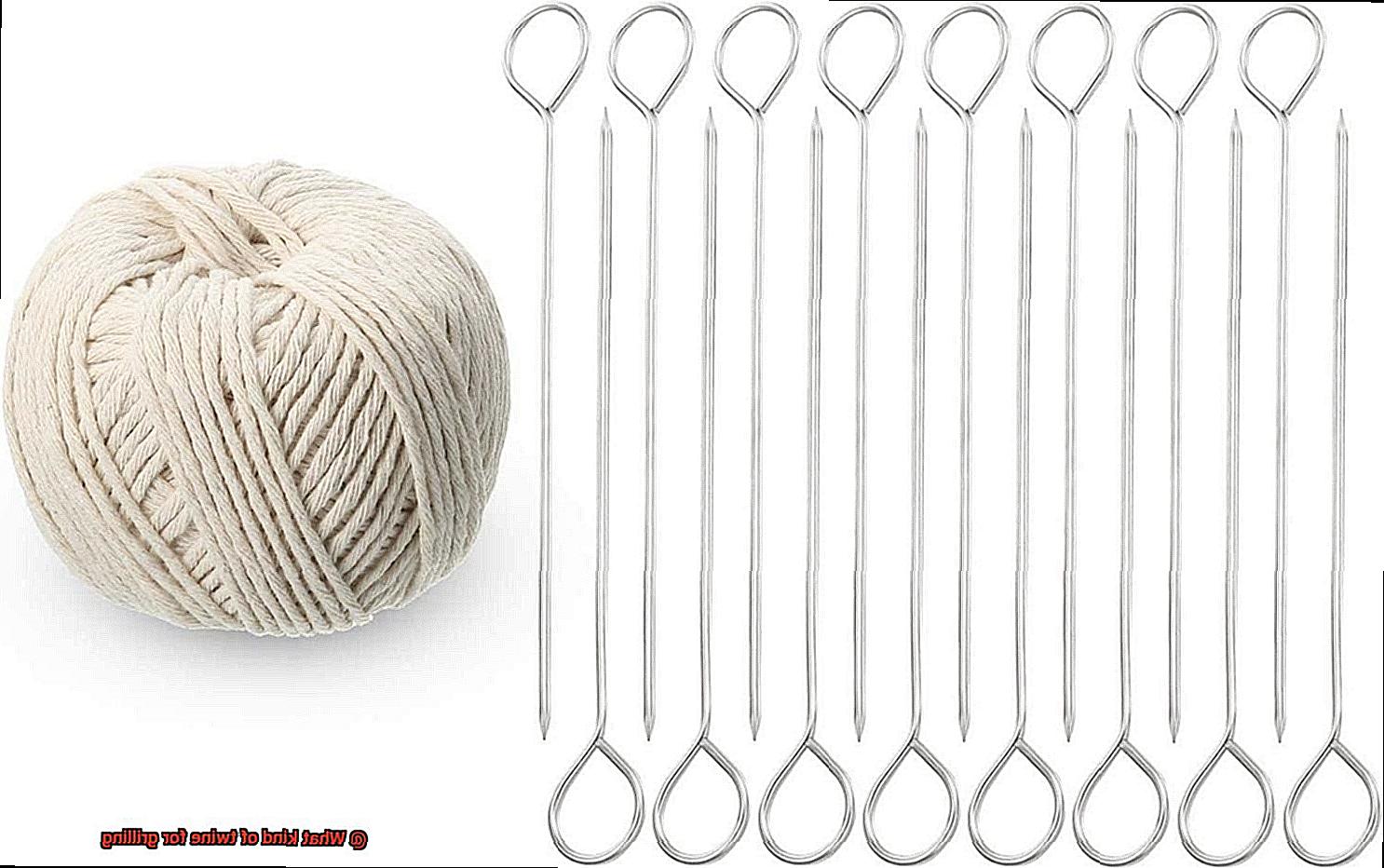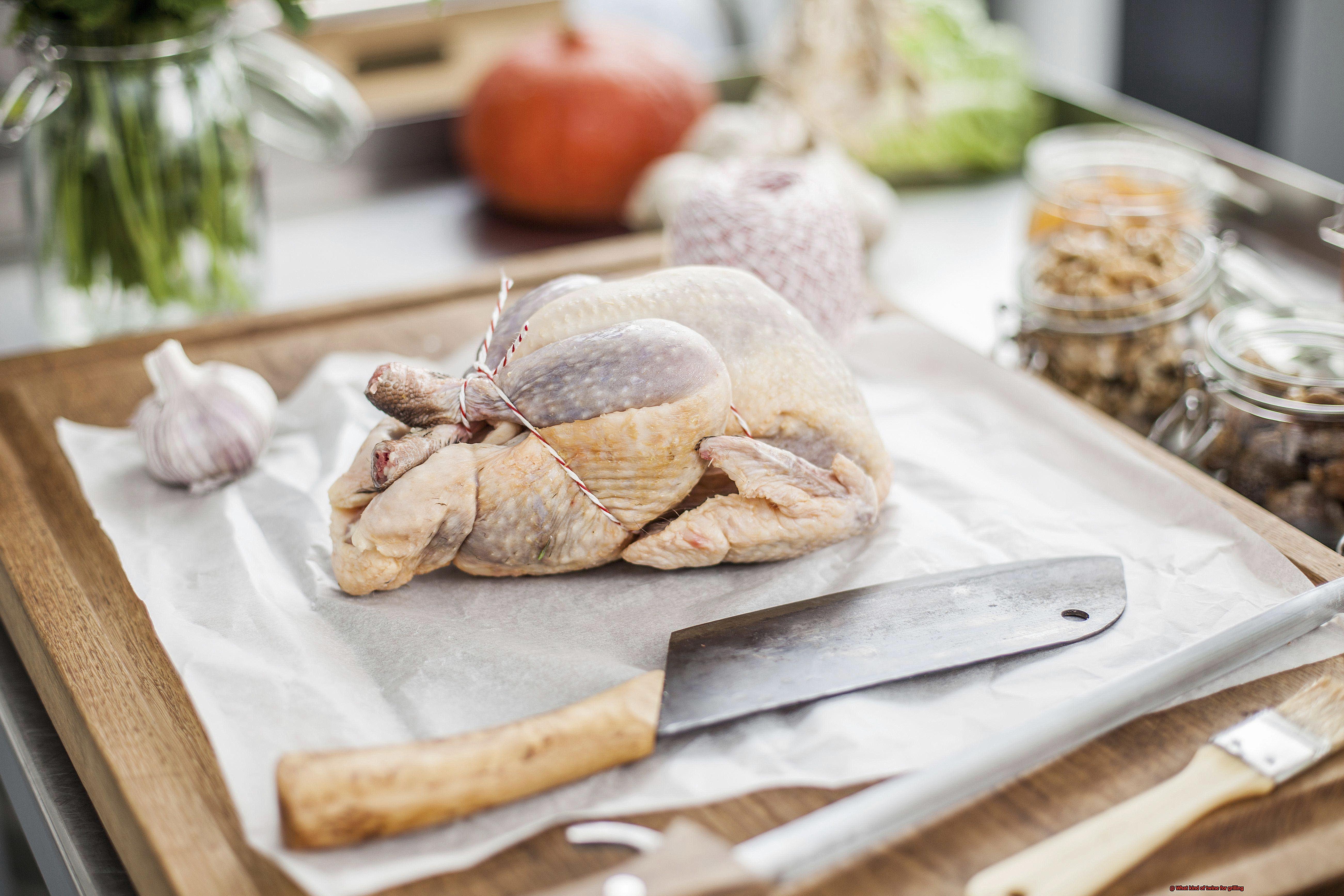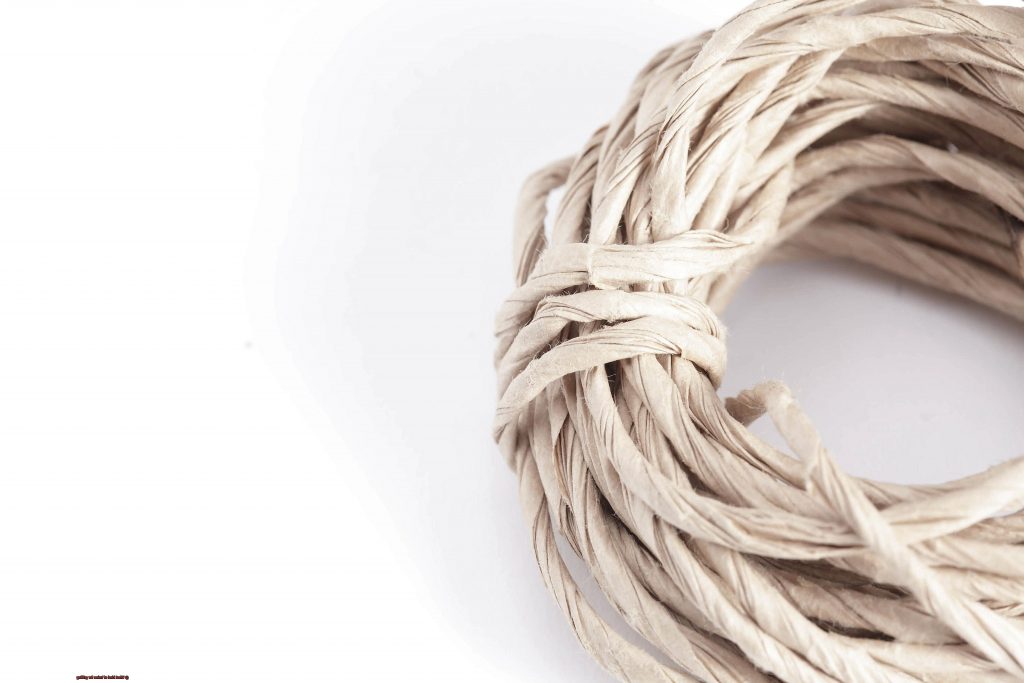It’s that time of year again – grilling season is finally here. The sun is shining, the birds are chirping, and it’s time to fire up the grill. But before you start planning your menu, let’s talk about one important tool that often gets overlooked: grilling twine.
You might be thinking, “What in the world is grilling twine?” Well, my friend, it’s a cooking essential that can make all the difference when it comes to grilling perfection. Whether you’re tying up a roast to ensure even cooking or securing delicate veggies on the grill, twine is a must-have for any serious griller.
But not all twine is created equal. Depending on what you’re cooking and how you plan to cook it, there are different types of twine that will work best. Some are heat-resistant for high-temperature cooking, while others are stronger and can handle heavier cuts of meat.
So before you go tying up your prized ribeye with any old string, take a moment to consider what kind of twine for grilling will suit your needs best. In this blog post, we’ll explore some of the different options available and help you find the perfect one for your next backyard barbecue. Get ready to take your grilling game to new heights.
Contents
Food Safety: Choosing Natural Twines
As a grill master, you know that every detail counts when it comes to perfecting your meats and veggies. However, one detail that often goes overlooked is the type of twine used to keep your food in place while grilling. Choosing the wrong twine can result in harmful chemicals or fibers on your food, so it’s important to prioritize food safety by choosing natural twines.
Natural twines like cotton or hemp are biodegradable and won’t leave any harmful substances on your food. Synthetic twines like nylon or polyester, on the other hand, can melt or break down in high heat, contaminating your food. When selecting a twine, make sure it’s labeled as food-safe and specifically marketed for use in cooking or grilling.
Thickness is another important factor to consider when choosing a twine. Thicker twines are more durable and can support heavier cuts of meat without breaking or snapping during grilling. Thin twines are better suited for delicate cuts like fish or vegetables.
When tying your meats, use a slipknot or butcher’s knot that is tight enough to keep your food intact during grilling but not so tight that it results in uneven cooking. Wrapping the twine too tightly around the food item can cause charred spots and uneven cooking.
Before using your twine, soak it in water to prevent it from catching fire while on the grill. This simple step can make all the difference in ensuring a safe and enjoyable grilling experience.
Heat Resistance: Avoiding Melting Synthetic Twines
While using twine is an excellent way to achieve this, it’s crucial to select the right kind of twine to avoid any potential safety hazards. Synthetic twines, in particular, can be risky as they have a low heat resistance and can melt under high temperatures. As an expert on heat resistance and avoiding melting synthetic twines, I’m here to provide you with some tips and tricks to keep your grilling safe and delicious.
Firstly, when selecting twine for grilling, always opt for natural fiber twines such as cotton or hemp. These twines have a higher heat resistance and are less likely to melt or catch fire when exposed to high temperatures. Additionally, they are biodegradable and environmentally friendly, making them an excellent choice for conscious grillers.
If you’re looking for an alternative to twine, metal skewers are another great option. They may not be as flexible as twine, but they are reusable and can withstand high temperatures without melting or catching fire. Stainless steel skewers are particularly popular because they are durable and rust-resistant.
To avoid potential safety hazards when using twine for grilling, it’s essential to keep the twine away from direct flames and hot surfaces. It’s also recommended to soak the twine in water before using it to further reduce the risk of it catching fire or melting.
Thickness: Selecting the Right Twine for Your Cut of Meat
But when it comes to selecting the perfect twine, thickness is essential. The thickness of your twine can impact cooking time and even the flavor of your meat. So, let’s dive into the details of selecting the right twine for your cut of meat.
First things first, for thinner cuts of meat like chicken breasts or fish fillets, a thinner twine is ideal. This ensures even cooking and prevents the twine from overpowering the delicate flavors of your meat. You wouldn’t want a thick and chewy piece of twine overshadowing your perfectly cooked fish, would you?
However, thicker cuts of meat like roasts or steaks require a thicker twine to keep them secure while grilling. Choosing a twine that matches the size of your meat is crucial to ensure that it stays tight and cooks evenly. After all, nobody wants their precious piece of meat falling apart on the grill.
But beware, using too thick of a twine on a thinner cut of meat can lead to uneven cooking and burned twine. Similarly, using too thin of a twine on a thicker cut of meat can result in the twine breaking or not holding the meat securely. It’s all about finding that perfect balance.
Knot Type: Securing Your Meat with a Slipknot or Butcher’s Knot
Grilling is an art, and like any artist, you need to have the right tools to create a masterpiece. When it comes to grilling meat, selecting the perfect twine is just as crucial as picking the right seasoning. But wait, there’s more. Once you have your twine, you need to know which knot type to use to secure your meat while grilling.
Enter the two popular knot types that are commonly used in grilling: the slipknot and the butcher’s knot. Each of these knots has its own unique advantages and disadvantages, and it’s important to understand the differences so you can choose which one is best suited for your grilling needs.

Let’s start with the slipknot. This knot is quick and easy to tie and undo. To tie a slipknot, make a loop with the twine and pass the end of the twine through the loop. Then, pass the end of the twine through the loop again, but this time, twist it before pulling it tight. The slipknot allows you to adjust the tightness of the twine as needed, ensuring that your meat stays securely in place while grilling. Slipknots work well for smaller cuts of meat but may not provide as secure of a hold on larger cuts.
On the other hand, a butcher’s knot is a bit more complex and requires some practice to master. This knot type involves tying a series of loops around the meat before finishing with a knot to secure it in place. To start, hold one end of the twine against the meat and make a loop with the other end. Then, pass the end of the twine through the loop twice before pulling it tight. From there, repeat this process several times until you have tied several loops around the meat. Finally, tie off the twine with a knot to secure it in place. Butcher’s knots can provide a more secure hold on larger cuts of meat, but they require more time and patience to perfect.
So, which one should you choose? That depends on what you’re grilling. If you’re working with smaller cuts of meat or need to quickly secure your meat, then a slipknot is the way to go. However, if you’re working with larger cuts of meat or want extra security for your meat while grilling, then a butcher’s knot is your best bet.
Cotton Twine: Benefits and Usage
When it comes to grilling, most people focus on the meat, marinades, and seasonings. However, one tool that is often overlooked but can make a huge difference in achieving the perfect cook is cotton twine. As an expert on the benefits and usage of cotton twine for grilling, I can tell you that it’s a game-changer.
First and foremost, let’s talk about the benefits of using cotton twine. Natural fiber composition makes cotton twine safe to use with food, and its heat-resistant properties make it ideal for grilling. The absorbent quality of cotton twine allows it to hold marinades and other flavors well. This means that when you tie up your meats or vegetables with cotton twine, the flavors will infuse into them as they cook. No more bland meats or veggies.
Additionally, cotton twine is strong and durable. It won’t break or melt under the heat of the grill, providing peace of mind while cooking. Furthermore, cotton twine is easy to handle and tie, even for beginners who may not be as experienced with using twine for grilling.
When choosing cotton twine for grilling, always opt for high-quality products without any chemicals or additives to avoid contaminating your food or affecting its flavor. It’s also essential to soak the twine in water before using it to prevent it from catching fire on the grill.
In terms of usage, cotton twine is incredibly versatile. Use it to tie up roasts or whole chickens to ensure even cooking and retain their shape. You can also use it to secure delicate items like shrimp or vegetables that might otherwise fall through the grates. Impress your guests by creating intricate butcher’s knots for a professional-looking presentation.
Hemp Twine: Benefits and Usage
As a grill master, you know the importance of having the right tools to create mouth-watering dishes. And when it comes to securing your food while it cooks, nothing beats hemp twine.

But what makes hemp twine so special? For starters, it’s made from natural fibers that are incredibly strong and durable, making it ideal for use in grilling. Plus, it’s resistant to heat and flames, meaning you can cook your food over an open fire without worrying about the twine breaking down.
But the benefits don’t stop there. Hemp twine is also eco-friendly and sustainable. Unlike synthetic twines, hemp is biodegradable and can be composted after use. This means that you can enjoy your grilled food without harming the environment.
Aside from being environmentally responsible, hemp twine is also practical. It ensures that your food stays securely in place while it cooks, allowing for even cooking on all sides. Whether you’re tying up a roast or skewering vegetables, hemp twine will keep everything together and prevent any unwanted falling apart.
To make the most of your hemp twine, be sure to choose a high-quality product that hasn’t been treated with harmful chemicals or pesticides. This will ensure that your food stays safe and that the twine can be composted after use.
Nylon and Polyester Twine: Benefits and Usage
When it comes to grilling, the right tools can make all the difference. And while twine may not be the first tool that comes to mind, it’s an essential one for any grill master. When it comes to twine, nylon and polyester are two of the most popular options due to their strength and durability.
Nylon twine is like a superhero when it comes to grilling. It’s known for its elasticity, able to stretch up to 40% of its original length without breaking. This makes it ideal for tying up meat or poultry that may expand during cooking. But nylon twine isn’t just elastic – it’s also resistant to abrasion, chemicals, and UV rays, making it perfect for outdoor grilling.
On the other hand, polyester twine is known for its strength and resistance to moisture. While it’s not as elastic as nylon, it can hold up to heavy loads without breaking. And because it’s resistant to mildew and rot, it’s an ideal choice for humid or wet conditions.
Both nylon and polyester twine come in a variety of colors, thicknesses, and lengths. This means you can choose the perfect twine for your needs, whether you’re securing vegetables on skewers or creating a makeshift rotisserie.
But before you start tying up your food with just any twine, be sure to check that it’s food-safe. Not all nylon and polyester twines are created equal, and some may contain harmful chemicals that could contaminate your food. Always check the packaging and make sure the twine is specifically labeled as food-safe before using it in your grilling endeavors.
Conclusion
In conclusion, grilling twine is a must-have tool for any grill master looking to achieve grilling perfection. It’s the little things that make all the difference, and using the right kind of twine can take your grilling game from good to great.
But not all twines are created equal. When selecting a grilling twine, it’s important to prioritize food safety by choosing natural options like cotton or hemp. These biodegradable materials won’t leave harmful substances on your food and will provide peace of mind while you cook.
Thickness is another crucial factor to consider. Thicker twines are more durable and can support heavier cuts of meat without breaking or snapping during grilling. This means you can focus on perfecting your cooking techniques instead of worrying about whether your twine will hold up.
Safety should also be top of mind when selecting a twine. Synthetic options like nylon or polyester have low heat resistance and can melt under high temperatures, posing potential safety hazards. Opting for natural fiber twines such as cotton or hemp will ensure that your cooking experience remains safe and enjoyable.
Finally, mastering knot types like slipknots or butcher’s knots will give you added confidence in securing your meat before grilling.






